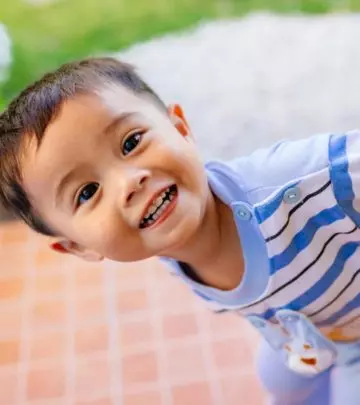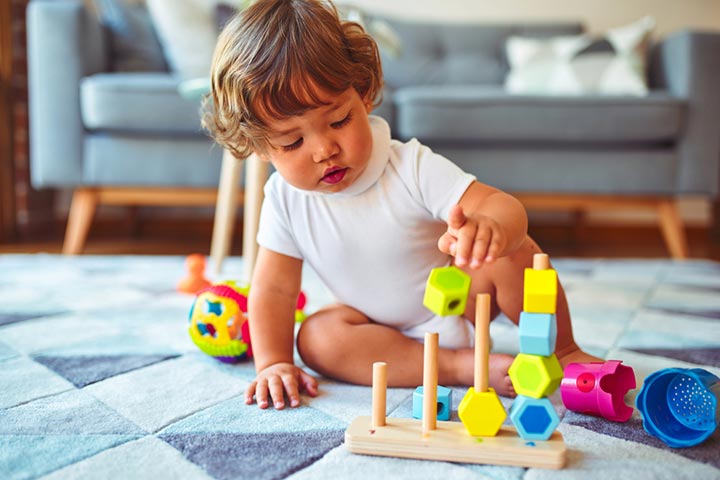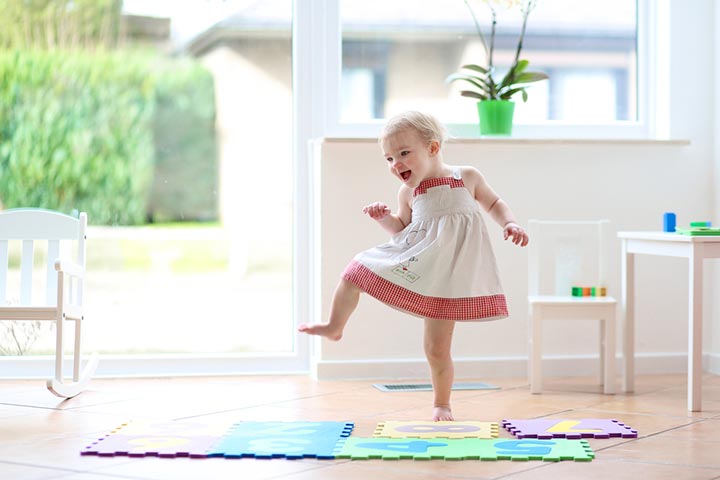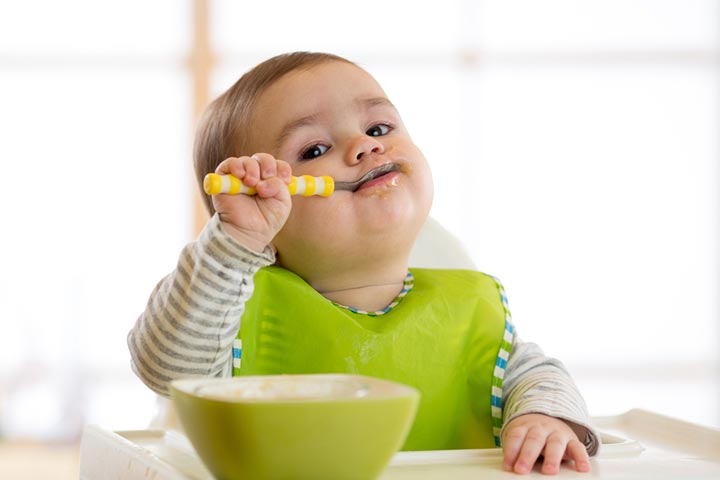
Image: Shutterstock
As kids, we all had one relative who squished our cheeks and gushed,
“You were so little the last time I saw you; look how much you’ve grown!”
Now that we are adults, we tend to notice the same thing in children. And if you are a parent, you must closely monitor your baby’s milestones. It is natural to wonder if they are facing any developmental delays or if their growth process is on track. In most cases, your child will eventually catch up with their peers even if they started out slow. However, if they do have a delay, there are specific measures you need to take. Before delving into that, let’s find out what a developmental delay in children means.
What Is Developmental Delay?
Developmental delays can affect a child’s overall growth, including physical, emotional, mental, and cognitive development. Most babies reach milestones like sitting, walking, and talking around the same age. Even though kids grow at their own pace, they follow a generic timeline. If a significant delay occurs for several months, you should consult a doctor.
Developmental Delay Vs. Developmental Disability
It is a common mistake for parents to confuse the two terms. However, a developmental disability primarily includes health conditions like hearing loss or vision, cerebral palsy, and autism spectrum disorder, which usually last a lifetime.
Signs Of Developmental Delay In Children
Image: Shutterstock
Mentioned below are a few signs that point toward a developmental delay in children. If your parental instincts say that something is wrong, you can take a look and see if you have noticed any of these in your baby:
Before A Year
By two months, your baby:
- Does not watch things as they move.
- Is unresponsive to loud sounds.
- Is unable to hold their head up while on their belly.
- Does not smile at people.
- Has no urge to bring hands to mouth.
By six months, your little one:
- Cannot coo or make vowel sounds.
- Does not try to grab things within reach.
- Does not roll over.
- Either seems floppy like a doll or has stiff muscles.
- Is unable to move one or both eyes properly.
By nine months, your child:
- Cannot sit with help.
- Does not bear weight on legs with support.
- Is unresponsive to their name.
- Has trouble recognizing familiar faces.
- Cannot understand where to look when you point somewhere.
- Has difficulty switching toys from one hand to another.
By a year, your toddler:
- Does not crawl and cannot stand with support.
- Does not use gestures or point at things.
- Does not look for things after seeing you hide them.
- Forgets skills they previously knew.
- Does not say single words like mama, papa, dada, etc.
After A Year
Image: Shutterstock
By 18 months, your kid:
- Cannot walk.
- Is unaware of what familiar things are used for.
- Does not know at least six words and cannot learn new words.
- Loses old skills.
By two years, your baby:
- Does not use short phrases like “I eat,” “give milk,” etc.
- Does not copy words or actions they see.
- Has difficulty following instructions.
- Cannot walk steadily.
By four years, your child:
- Cannot jump or run properly.
- Cannot understand the concept of “you” and “me” or “same” and “different.”
- Tries to avoid going to the bathroom, dressing, or sleeping as long as they can.
- Speaks unclearly and cannot retell favorite stories.
- Cannot scribble.
- Is detached from people.
By five years, your kid:
- Fails to express their emotions properly.
- Has an extreme outburst of negative feelings like fear, aggression, and sadness.
- Is absent-minded and easily distracted.
- Cannot remember their first and last name.
- Cannot do simple things like brushing teeth or getting undressed without help.
- Cannot draw pictures.
- Does not respond to people appropriately.
Does Your Child Have A Developmental Delay?
Image: Shutterstock
Developmental delays occur in 10-15% of preschoolers (1). Studies show that only about 3% of children get timely attention. While some delays disappear when a kid goes to school, other cases may not be identified until later. If such cases are detected late, they may develop behavioral problems, learning difficulties, and functional impairments later in life (2). Early intervention and diagnosis can help overcome this condition.
What Causes Developmental Delay?
At times, developmental delay has a medical cause like Down syndrome, premature birth, or a severe accident or illness behind it. The difficulties might be linked to a problem in the central nervous system. Most of the time, however, no specific reason can be found for such delays.
Who Can Confirm If My Child Has A Developmental Delay?
Image: Shutterstock
You should consult your child’s pediatrician as soon as you notice something seems off. Through regular checkups and screenings, the doctor can confirm if there is room for such potential delays. Your doctor will examine specific skills and abilities by using standard developmental assessments. If there is cause for concern, they will proceed to detailed tests before recommending you to a specialist in developmental delays.
Since it is difficult to gauge if a baby has hearing or vision problems, it is best to make eye and ear checkups a part of the other routine tests.
Developmental delays can be improved by early detection and care. With regular checkups, screenings, and tests, your child will be able to make significant improvements. It is natural to be worried about your child facing such concerns. However, it would be best to tread this path with patience. The key is to intervene early and put a pause to it.

















